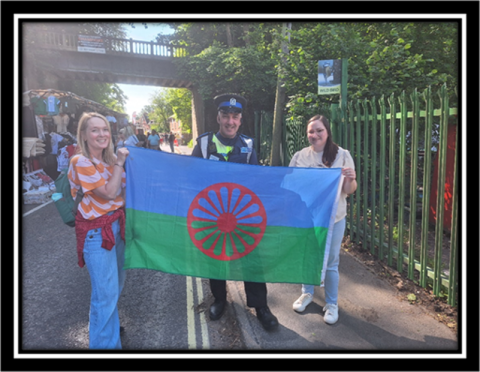
Main navigation - Library
Secondary Menu - Library
Secondary menu
Search suggestions update instantly to match the search query.
Celebrating Gypsy, Roma and Traveller History Month 2025

By Dr. Annabel Tremlett | University of Portsmouth
Honouring Rich Heritage
Gypsy, Roma and Traveller History Month (GRTHM) celebrates the vibrant cultures, stories, and contributions of these communities to UK history and present day life.
This year, the University of Portsmouth Library is proud to host an exhibition dedicated to Traveller culture in Hampshire - with a special focus on the Wickham Horse Fair, one of Britain’s oldest and most significant traditional gatherings.
Wickham Horse Fair: A Living Tradition
Every May 20th, the small village of Wickham (10 miles north of Portsmouth) bursts into life as horse dealers, families, and visitors converge to trade, celebrate, and preserve a centuries-old tradition.
The fair dates back to 1269, when King Henry III granted a Royal Charter. Today, it includes:
- Traditional horse parades
- Vibrant market stalls
- A lively funfair in the town square
- Deep-rooted community interactions and heritage storytelling
I attended the fair with Cushty Pompey, our Portsmouth-based forum of professionals and community members engaging with GRT matters.
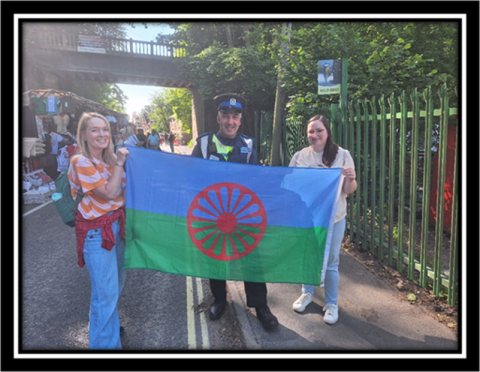
Dr Annabel Tremlett with members of ‘Cushty Pompey’ at Wickham Horse Fair, May 20th 2025. Pictured in the middle is Stephen Hull, from a Showmen background who is also an award-winning police community support officer and attends such events as a Liaison Officer.
A Day of Colour, Culture, and Connection
Images of Wickham Horse Fair
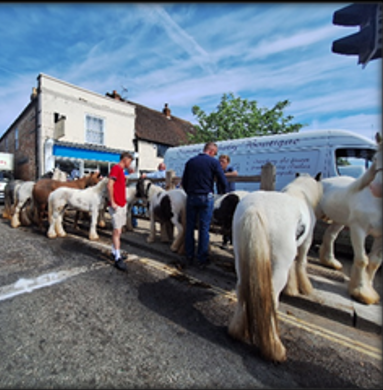
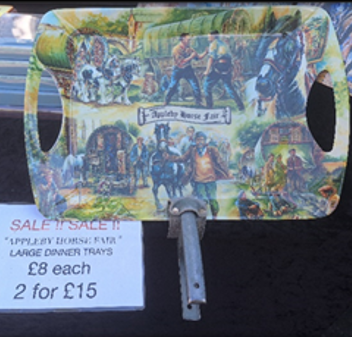
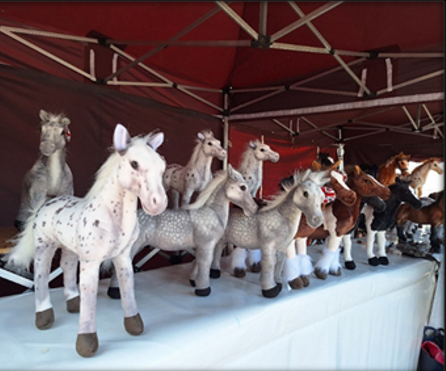
Everywhere I looked, there was life. Stalls sold bijou children's wear, fancy ceramics, and even realistic toy horses. Ponies and traps raced along Winchester Road, a spectacle for locals and visitors alike.
However, one detail struck me: the closed businesses. Only a fish and chip shop and a children’s clothing store were open, and doing a roaring trade. There were various signs reporting closure of pubs, shops, even toilets, which, whilst often apologetic, when seen together felt unwelcoming.
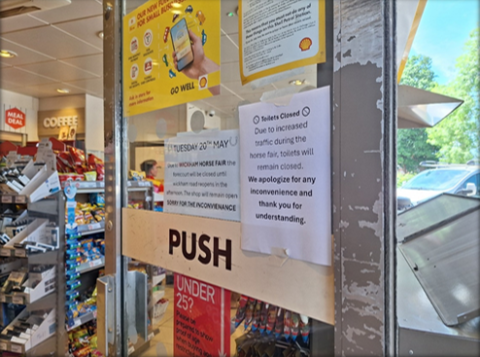
Echoes from the Past
I also couldn’t fail to observe a more ancient sign – that many other visitors walked past without noticing – on the Old Barracks on Bridge Street, dating to 1495. It referenced "vagrants," a term that from the 16th century became entangled with discrimination against itinerant groups such as Gypsies, tinkers, and pedlars. Historians like David Mayall and David Cressy reveal how these laws aimed to control populations and undermine nomadic lifestyles.
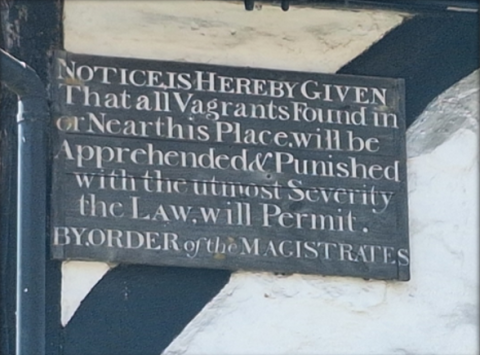
Old Barracks on Bridge Street, Wickham, dating back to 1945. Not the use of the word 'vagrants' - often used interchangeably with 'Gypsies' at that time.
Changing Media Narratives
Unlike in past years — when headlines often sowed tension — 2025’s coverage was largely positive. Even the worst headline grabbers were counteracted by positive ones – see these two reports from The Sun and then The Daily Mail – both known for being notoriously anti-Traveller:
Newspaper headlines
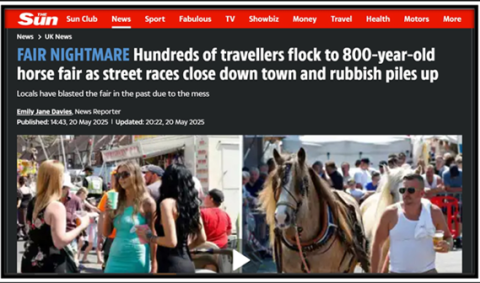
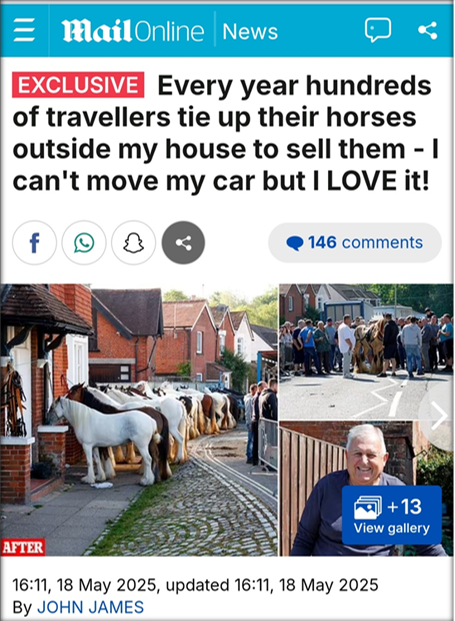
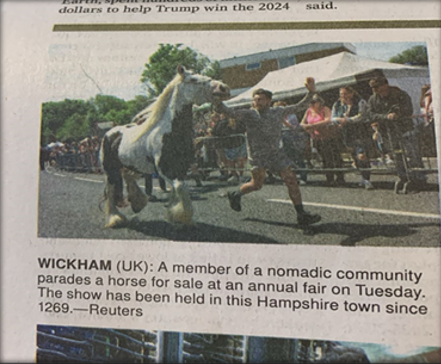
Incredibly, the Wickham Horse Fair even received a mention in Pakistan’s English-language daily, Dawn.
Conversations, Connections, and Community
There were no arrests or reported damage, despite the large turnout. I spoke with lots of people about the horses and ponies they were selling or just showing off. I chatted with the representatives from animal welfare charities who come every year – not because they are particularly worried about the horses – but rather as they learn so much from Travellers about ways to care for horses and ponies. Like everyone else, they enjoy catching up with people and their animals that they’ve come to know over the years.
Particular highlights: a toy horse stall owner proud of her grandmother's birth certificate listing “hawker” as her parents’ occupation — a treasured family legacy. Or how one young woman copes with the current cost of living crisis by living in a static mobile home, loving the camaraderie of the community on her site and the help she gets with her young baby, even though she isn’t from a Traveller background. I loved seeing people catching up with each other, clearly enjoying swapping family gossip and cooing over new additions.
Looking Ahead
It was a sunny, joyful day filled with tradition, history, and genuine connection. A family from Portchester even promised to share a handwritten family history passed down through generations — I can't wait to read it!
Wickham Horse Fair is already in my calendar for 2026. Gypsy, Roma and Traveller History Month (GRTHM) has been celebrated in June since 2008.
For more information see the following organisations:
- Friends, Families and Travellers: https://www.gypsy-traveller.org/
- The Traveller Movement: https://travellermovement.org.uk/
- Roma Support Group: https://www.romasupportgroup.org.uk/
- European Roma Rights Centre: https://www.errc.org/
- European Roma Institute for Arts and Culture: https://eriac.org/about-eriac/
Key academic texts
For an overview of the key literature on racism against Gypsy, Roma and Travellers, see
- Tremlett, A., Kóczé, A. and Clark, C. (forthcoming) ‘Racism against Roma, Gypsy and Traveller People’. In Solomos, J. Routledge Encyclopedia of Race and Racism, pre-print version available here:
- Baker, Daniel and Hlavajova, Maria (eds.) 2013. We Roma: A Critical Reader in Contemporary Art (BAK and Valiz: Utrecht and Amsterdam). pp.7-48.
- Cressy, D. (2018) Gypsies: an English History. Oxford: Oxford University Press.
- Crowe, D. M. (2007) (second edition) A History of the Gypsies of Eastern Europe and Russia (Basingstoke: Palgrave Macmillan)
- Fraser, A. (1995) (second edition) The Gypsies. (Oxford: Blackwell publishing)
- Kóczé, A., Zentai, V., Jovanovic, J., Vincze, E. (eds.). 2019 The Romani Women’s Movement: Struggles and Debates in Central and Eastern Europe. London: Routledge.
- Mayall, David. 2003 Gypsy Identities 1500-2000: From Egipcyans and Moon-men to the Ethnic Romany (London: Routledge)
Visit the GRTHM Exhibition
June 2025
University of Portsmouth Library
Curated by Dr. Annabel Tremlett
Photos © 2025 by Annabel Tremlett are licensed under CC BY-NC-SA 4.0
Roma culture, art and diversity on display
Don't miss!
- Don't miss your chance to see Dr Annabel Tremlett's display in the Library display space looking this GRT History Month on both Roma art and LGBTIQ Roma culture.
- Don't miss Annabel's earlier blog post on her work with local GRT group Cushty Pompey!
Visualising the lives of LGBTIQ Roma
Welcome to our exhibition visualizing the lives of LGBTIQ Roma here at the University of Portsmouth so Roma, Gypsy and Traveler people are often the most frequently misrepresented people in our societies. So whilst Roma, Gypsies and Travellers are very broad labels that incorporate many different diversities of people actually their public image can be very stuck and very fixed. So we asked some activists and artists from these backgrounds to come to the UK and in Portsmouth and Brighton to make their own images of how they visualize their lives and also challenging stereotypes so we're really hoping you can come up to the first floor of the University of Portsmouth library and come and see our exhibition.
Roma art and culture
Hi, So alongside our exhibition visualizing the lives of Roma LGBTIQ people, we also have just a very small but very good selection of Roma artists: examples of contemporary art. There's a
new movement for Roma art and it's so exciting so we have Malgorzata Mirga-Tas, who was the first Roma artist to be chosen to represent a national Pavilion the Polish Pavilion in 2022 and we have our very own Delaine La Bas, a British Artist from Worthing, so local as well who is nominated for the Turner Prize. So we have examples of their work, so please come and see that.

